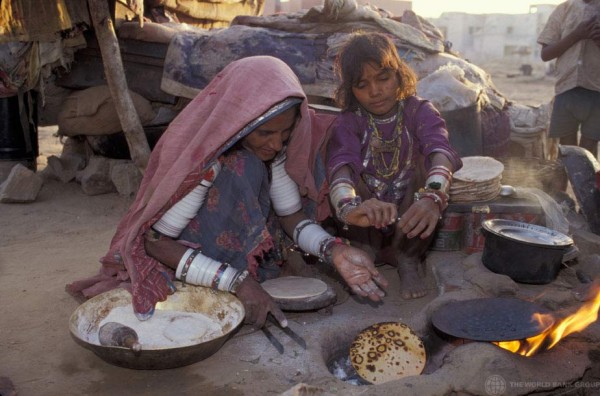The lack of political will to stand up for migrant workers’ rights remains the greatest challenge to the protection of this “very vulnerable” group of human beings, an independent United Nations expert affirmed on 24 October 2014.
Speaking before the General Assembly’s Third Committee, which reviews the work accomplished by the UN’s independent human rights experts, Francisco Carrion Mena, Chairperson of the UN Committee on the Rights of Migrant Workers and their Families (CMW), warned that some Member States “mistakenly consider border areas as exempt from human rights obligations.”*
States Cannot Override Their Obligation to Respect, Protect and Fulfill the Human Rights of All Persons…
“States’ legitimate interests in securing their borders and exercising immigration control cannot override their obligation to respect, protect and fulfil the human rights of all persons in all areas under their jurisdiction, regardless of their migration status,” Carrion Mena said as he presented his annual report to the Committee.
The CMW Chairperson lamented the growing number of lives lost at sea and on land as a result of insufficient channels of migration, suggesting that States could better their efforts in ensuring migrants a safer avenue of passage.
In particular, he cited the 300 immigrants who died when their boat sank off the coast of Lampedusa, Italy, last year while also recalling that “just last month 500 migrants, including 100 children, drowned in the middle of the Mediterranean when smugglers rammed their boat.”
More Than 3,000 Deaths in the Mediterranean from January to September 2014
According to the International Organization for Migration (IOM), the Mediterranean has become an extremely perilous crossing point for the thousands of migrants who seek a better life in Europe. IOM figures, in fact, have documented more than 3,000 deaths in the Mediterranean from January to September 2014 while reporting 230 deaths along the US-Mexican border for the same period.
Asylum-seekers and economic migrants take to the seas, waiting out the dangerous journey in the boat’s cramped cargo space. Photo: UNHCR/A. D’Amato
On that note, Carrion Mena underlined the contributions the world’s estimated 230 million migrants make to the economic, social and cultural development of their host nations and their communities back home, adding that “too often these contributions go unrecognized.” More often than not, he continued, the migrants suffer for their irregular status at the hands of those who employ them.
“Migrants continue to suffer exploitation, xenophoà$bic violence and abuse, especially those in an irregular situation,” he stated. “For example, Qatar has acknowledged that almost 1000 migrants died over the past two years in work-related incidents and illnesses.”
Concrete Recommendations
The CMW Chairperson told the Committee that his report made a number of “concrete recommendations” to States parties, including enacting legislation and other reforms to eliminate all forms of discrimination against migrants; strengthening law enforcement and criminal justice responses to xenophobia and violence and enable migrants to access justice; creating campaigns to end negative and inaccurate public messages and promote tolerance and respect for migrants; and collecting and disseminating accurate data on discrimination and on the positive contributions that migrants make to the development of both their host countries and home communities.
After being adopted by the UN General Assembly in December 1990, it took 13 years for the International Convention on the Rights of Migrant Workers and their Families (ICRMW) to come into force – the longest of any of the 10 core international human rights instruments – due to its very slow ratification rate. As he concluded, Mr. Carrion Mena urged Member States to ratify the ICRMW.
Only 47 States have done so since the Convention was adopted almost 25 years ago. (*Source: UN Release).
Read also:
Two Main Routes of Smuggling of Migrants Generate $7 Billion a Year to Criminal Groups
Who Dares to Challenge a 32 Billion Dollars Business – Human Trafficking?
“Media Reporting on Migration Rarely Includes Voices of Migrants”
Rescuing Migrants in the Sea — Tunisian Fishermen Unlikely Heroes
2014 Human Wrongs Watch











